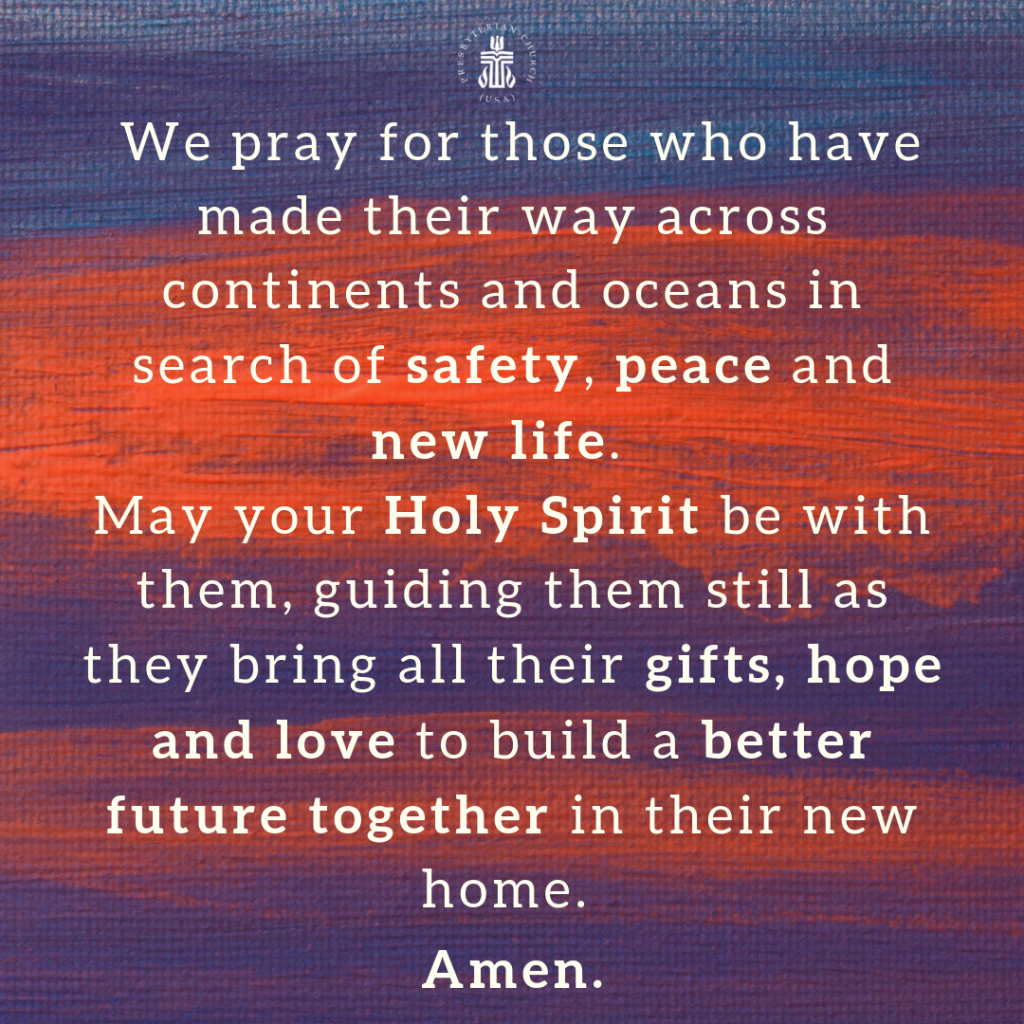How do we—as a community, a church, and a nation—care for the vulnerable?
This is a question we are compelled to examine, particularly when it comes to refugees and forced migrants. Whatever your opinion of U.S. immigration policies, people (such as those attempting to enter through our southern border) are living in precarious situations, for the most part forgotten and ignored by those in the northern hemisphere. Understandably, these human beings, our brothers and sisters, are determined to be seen and heard.
In Matthew 25, Jesus tells of a time when the nations will be gathered and judged by how they have treated the most vulnerable. When exploring why we should welcome the stranger, many groups say “that is what Jesus would do.” However, a closer look at Matthew 25 shows that the King of Glory doesn’t judge people based simply upon their mimicking Jesus’ actions, but upon how they treated Jesus himself.
“Truly I tell you, just as you did it to one of the least of these who are members of my family, you did it to me.” [Matthew 25:40]
In other words, by welcoming the stranger, you welcome a member of God’s family and you welcome Jesus. Conversely, when you reject, ignore, or do not welcome the stranger, you reject and ignore Jesus himself.
What does this mean for U.S. Christians in the face of federal efforts to turn away refugees and asylum seekers? Being called to welcome doesn’t mean ignoring the existence of borders or the need for security measures. It means finding a way to see Jesus in the faces of the women and children, to be a nation of welcome to those who are fleeing conflict and despair.
As we approach World Refugee Day on June 20th, consider how you might honor these members of Jesus’ family. We have many resources to assist you, including an updated Welcome Action Guide. We encourage local congregations to lift up refugees and asylum seekers in your worship services the week of World Refugee Day or any time between now and Immigration Sunday (July 7, 2019). In addition, you might use this time to invite someone from your local community to speak about the refugee experience or use one of PCUSA’s educational resources to lead a discussion. Many local organizations and even some municipalities organize special events around World Refugee Day.
There are also a variety of ways to advocate within our home communities as well as on the national stage. At the national level, the Stated Clerk is participating in a “Letter a Day” campaign to Congress and the President. Many congregations and individuals are called to take part in prayer vigils or protests. Some take to social media to voice their opinions (you can use our hashtag #WeChooseWelcome to join the conversation). Others choose instead to visit, write, or call their local, state, and national policymakers. Whatever the course of action, we must champion policies that affirm welcome and protect refugees and asylum seekers.
At this particular time, it is also more important than ever to get involved in service with refugees and asylum seekers who are either already in the U.S. or those who will arrive in the months to come. In the absence of clear government policies and shrinking government programs, people of faith are providing life saving services in ways that uplift the human soul and reaffirm an individual’s dignity. These transformative personal experiences make it easier for us to be faithful allies, advocating with the individuals we meet, to speak to those in power on their behalf, and educate others about the need for welcoming policies. After all, which of us would not speak up for a friend or neighbor if they needed us to do so?
Together, we can make real our commitment to choose welcome through our words and deeds, to welcome Christ again and again.
…….
We are always interested in learning about what you and your congregation are doing to assist refugees within your community or asylum seekers at the border. Please email us your stories at PDA@pcusa.org so that we can post them to the blog. Seeing what others are doing inspires us all to get more involved!
